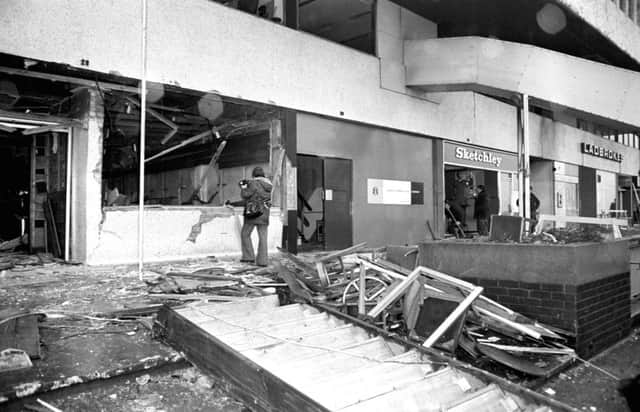Botched warning message blamed for IRA blast deaths in Birmingham


Two massive detonations caused what one witness described as “pure carnage”, ripping apart the packed Mulberry Bush and Tavern in the Town pubs on the night of November 21, killing 21 and injuring 220 more.
The 11-member panel, which sat for almost six weeks and deliberated for almost five hours, unanimously concluded an inadequate warning call by the Provisional IRA, which carried out the attacks, cost the stretched police vital minutes.
Advertisement
Hide AdAdvertisement
Hide AdThe six female and five male jurors also determined the victims were unlawfully killed.
They also found there was “not sufficient evidence” of any failings, errors or omissions by West Midlands Police’s response to the bomb warning call, or in regards to two alleged tip-offs to the force, giving advanced warning of the blasts. Qualifying the jury findings in relation to the police’s response, the panel’s foreman told the court: “The decision was based on the balance of the evidence provided.”
The families of those killed have called on the police to “redouble” efforts to bring those responsible to justice.Giving conclusions, the jury found a coded telephone warning by the IRA to the Birmingham Post and Mail at 8.11pm was wholly inadequate.
The call, made to newspaper telephonist Ian Cropper, gave the bomb locations as the famous Rotunda building and the nearby Tax Office in New Street, making no mention of pubs. Police first on the scene searched the Rotunda office block, wrongly believing one of the bombs was inside.
Advertisement
Hide AdAdvertisement
Hide AdIn evidence, it emerged frontline officers had no standardised training or procedures to work from when dealing with bomb warnings.
During evidence, medical experts said those killed suffered “unsurvivable” injuries but that hospital medical care had been “very impressive”, even by modern standards.
However, there were not enough ambulances to go around, and taxi drivers had to take casualties to hospitals.
After taking conclusions, coroner Sir Peter Thornton QC offered “heartfelt appreciation” to all those who helped that night, from the police and firefighters to taxi drivers and members of the public.
Advertisement
Hide AdAdvertisement
Hide AdThe pub bombings were the deadliest post-Second World War attack on the British mainland until the 7/7 London terrorist attacks in 2005.
A botched investigation by West Midlands Police led to the 1975 convictions of the Birmingham Six, but their convictions were quashed by the Court of Appeal in 1991.